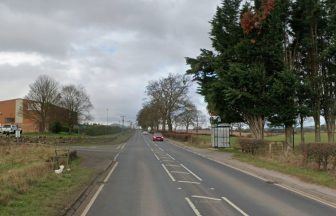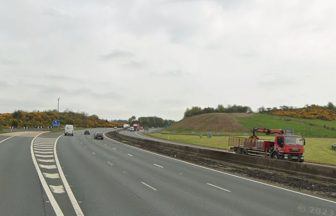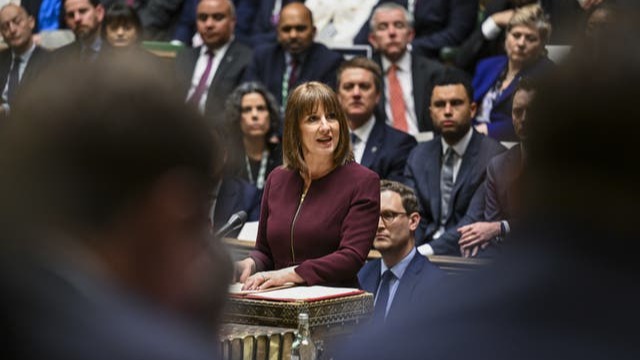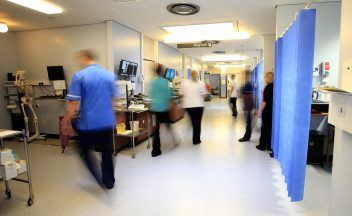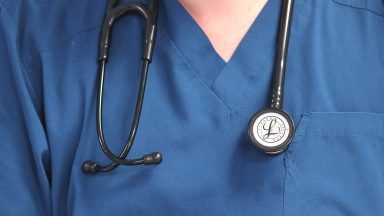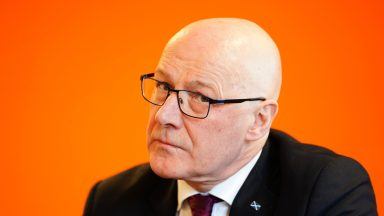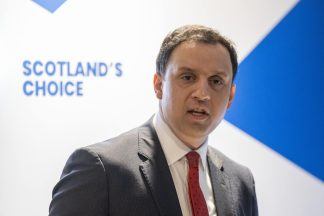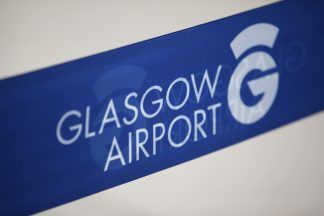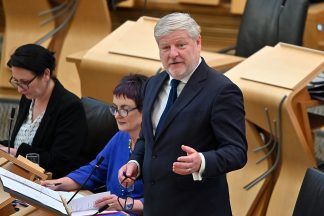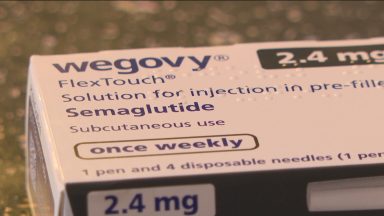Nicola Sturgeon has published her economic prospectus paper for an independent Scotland.
Speaking at Bute House in Edinburgh, the First Minister said: “A stronger, fairer, more sustainable economy is more possible for Scotland with independence than it ever will be with continued Westminster control.”
The economic paper is the third document in the ‘Building a New Scotland’ series, which the Scottish Government says will give people the information they need before an independence referendum.
Last week, the Supreme Court heard arguments over whether the Scottish Government has the power to hold indyref2 without UK Government backing.
It may take several months for a decision, but the Scottish Government is pressing ahead with building its economic case.
STV News takes a look at five key issues from Monday’s briefing.
What currency would Scotland use?
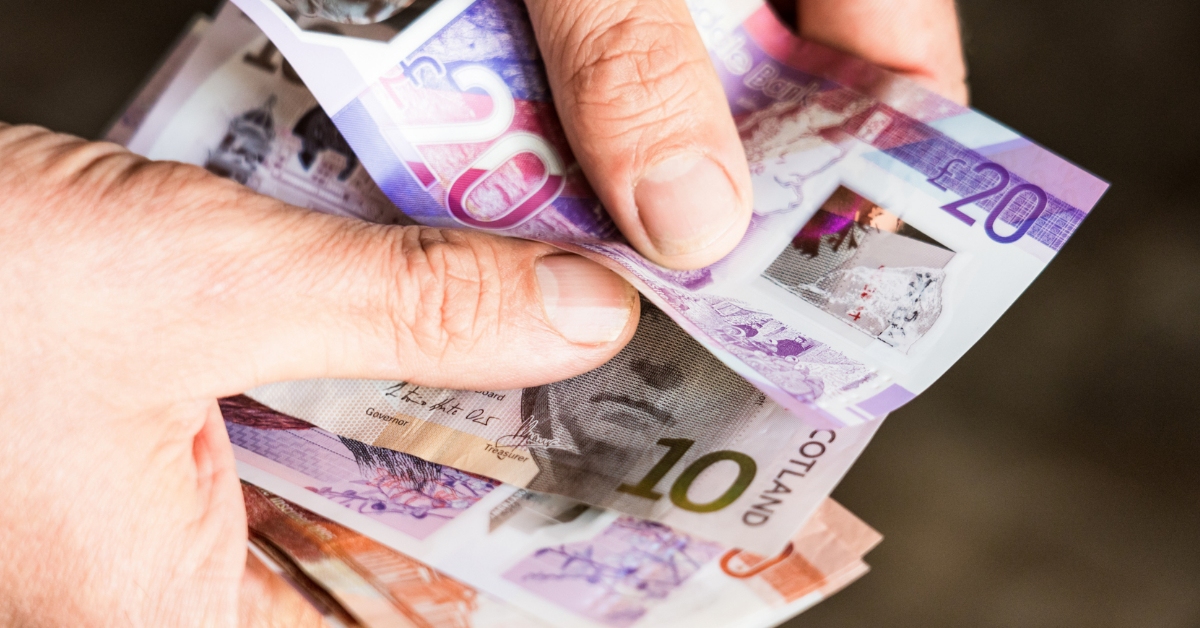 iStock
iStockThe First Minister said Scotland would transition to the use of a new currency “as soon as practicable” after achieving independence from the United Kingdom.
The “Building a new Scotland” paper outlines how Scotland would push for the creation of its own money, the Scottish Pound, monitored by a new Scottish Central Bank, though Sturgeon said any transition would be “guided by criteria and economic conditions rather than a fixed timetable”.
The First Minister said it would not be possible to move to the new currency on day one of independence, declining to provide a timescale.
Scotland would likely have no control over monetary policy until the currency is created.
By the time Scotland is officially independent, the document said, the central bank would be set up and become the lender of last resort and a banker for the Scottish Government, with the independent body eventually tasked with setting monetary policy when the currency goes live.
Would there be any cross-border checks?
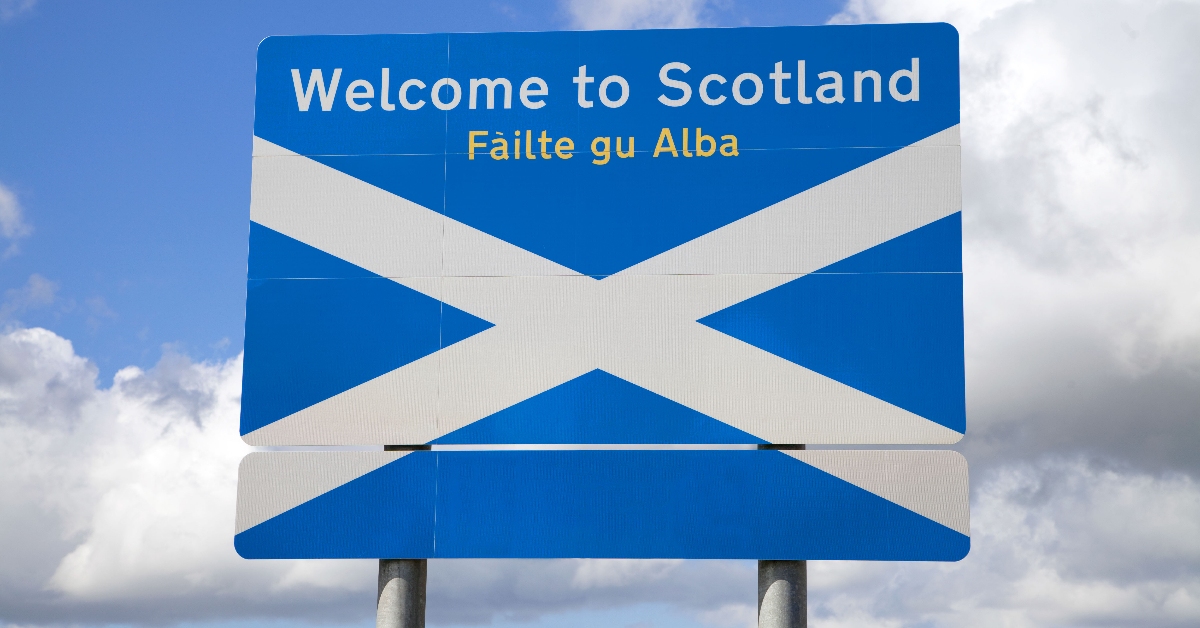 iStock
iStockThe First Minister said independence would create some trade border checks between Scotland and England necessary.
She said checks would be likely to take place on two major trunk roads, the M6 and the A1, as well as at rail freight terminals.
Sturgeon said the “challenges” posed by the border had been caused by Brexit – if an independent Scotland was to re-join the EU single market, as she intends, it would create a trade border between Scotland and England.
She pointed out that much of the trade is is services, and where checks on physical goods are needed technology would be used, and businesses supported.
The First Minister also said she was confident disruption to trade would be minimised.
An independent Scotland would look to join the EU with free movement with the European Union countries, remaining within the Common Travel Area with the UK and Ireland, while also joining the EU’s Schengen free-movement area.
Would Scotland have to take on UK debt?
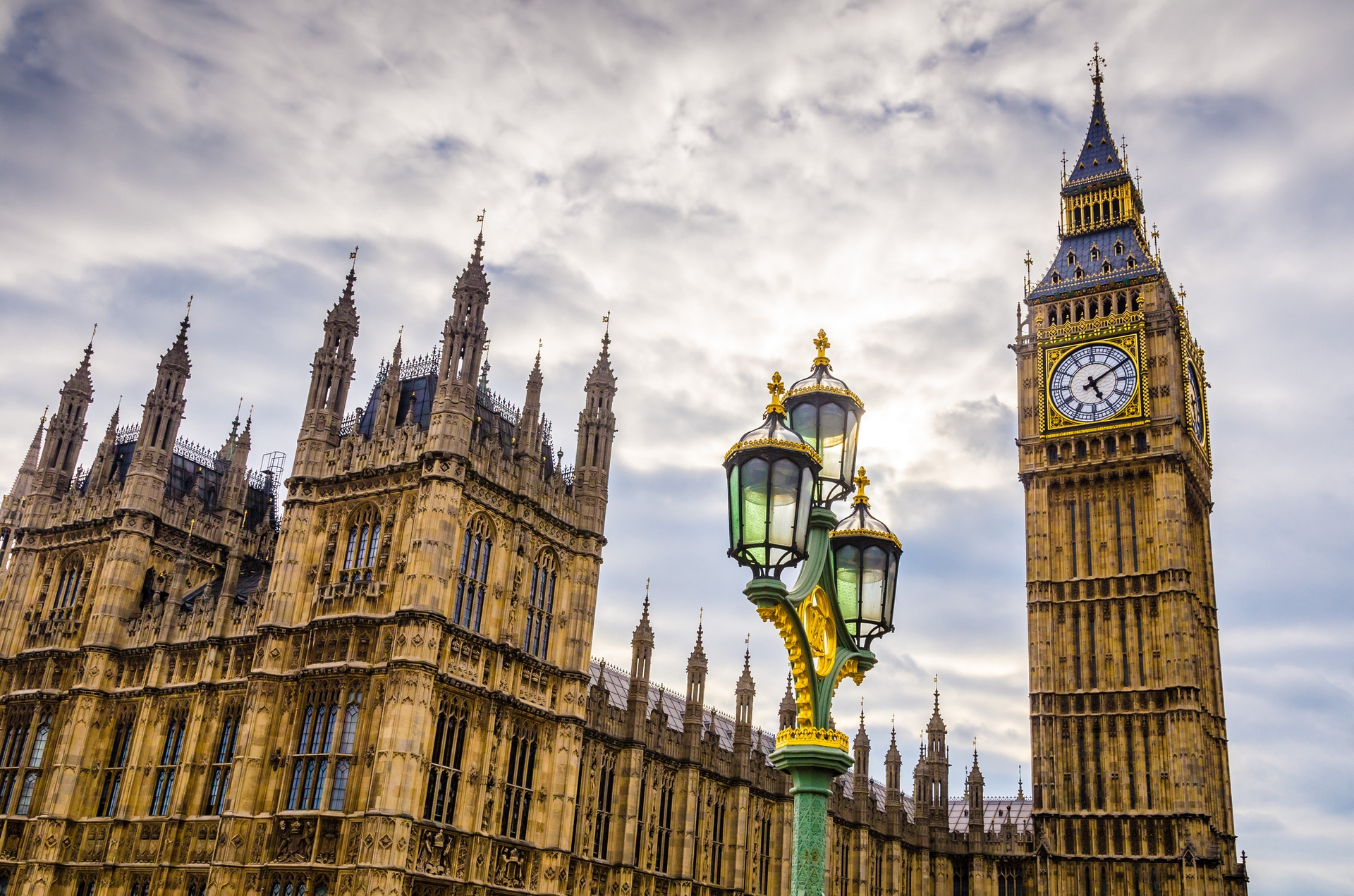 iStock
iStockThe First Minister explained that while there was no “legal” requirement to do so, Holyrood has a “moral” responsibility to take on its share of the UK’s overall debt.
She told the press conference: “In light of that, and indeed our desire for a strong future partnership between Scottish and UK governments, we would seek a fair settlement on both debt and assets.”
Sturgeon also said it was not possible to estimate the starting fiscal position of an independent Scotland due to the “turmoil” around the UK’s finances.
She said: “We do confirm that we would set clear fiscal rules to put and keep public finances on a sustainable path.
“We would intend these to align with the broad principles of the European Growth and Stability Pact, which is currently being reformed.”
She said she rejected austerity as “both morally wrong and economically counterproductive”.
The Scottish Fiscal Commission would have its powers expanded and effectively replicate the Office for Budget Responsibility, with a central bank and debt management office also being created.
How will Scotland fund economic growth?
 iStock
iStockThe document laid out plans for a £20bn fund that would invest in capital projects in the first decade after independence.
The Building a New Scotland Fund would use a mixture of oil and gas revenues and borrowing to fund projects that would aim to enable the transition to net zero, drive “inclusive economic growth” and “build resilient and sustainable places”.
The Institute for Fiscal Studies (IFS), however, said Scotland would likely face either increased taxes or cuts in public spending unless onshore economic growth is boosted to counteract the declining North Sea sector.
Responding to the paper, the IFS said Scotland would be faced with a “substantial deficit” after independence, meaning borrowing would have to be used for the fund.
It was put to the First Minister that Scotland’s gap between public spending and tax revenue was higher than the UK average.
Asked if the first years of an independent Scotland would require tax rises, spending cuts and borrowing, she said: “Most governments in developed countries borrow all the time for investment and also to cover gaps in between the revenues and expenditure.”
Sturgeon repeated that it was not possible to estimate an independent Scotland’s opening fiscal position, but added she may be able to update on this in the months to come.
How would Scotland pursue joining the European Union?
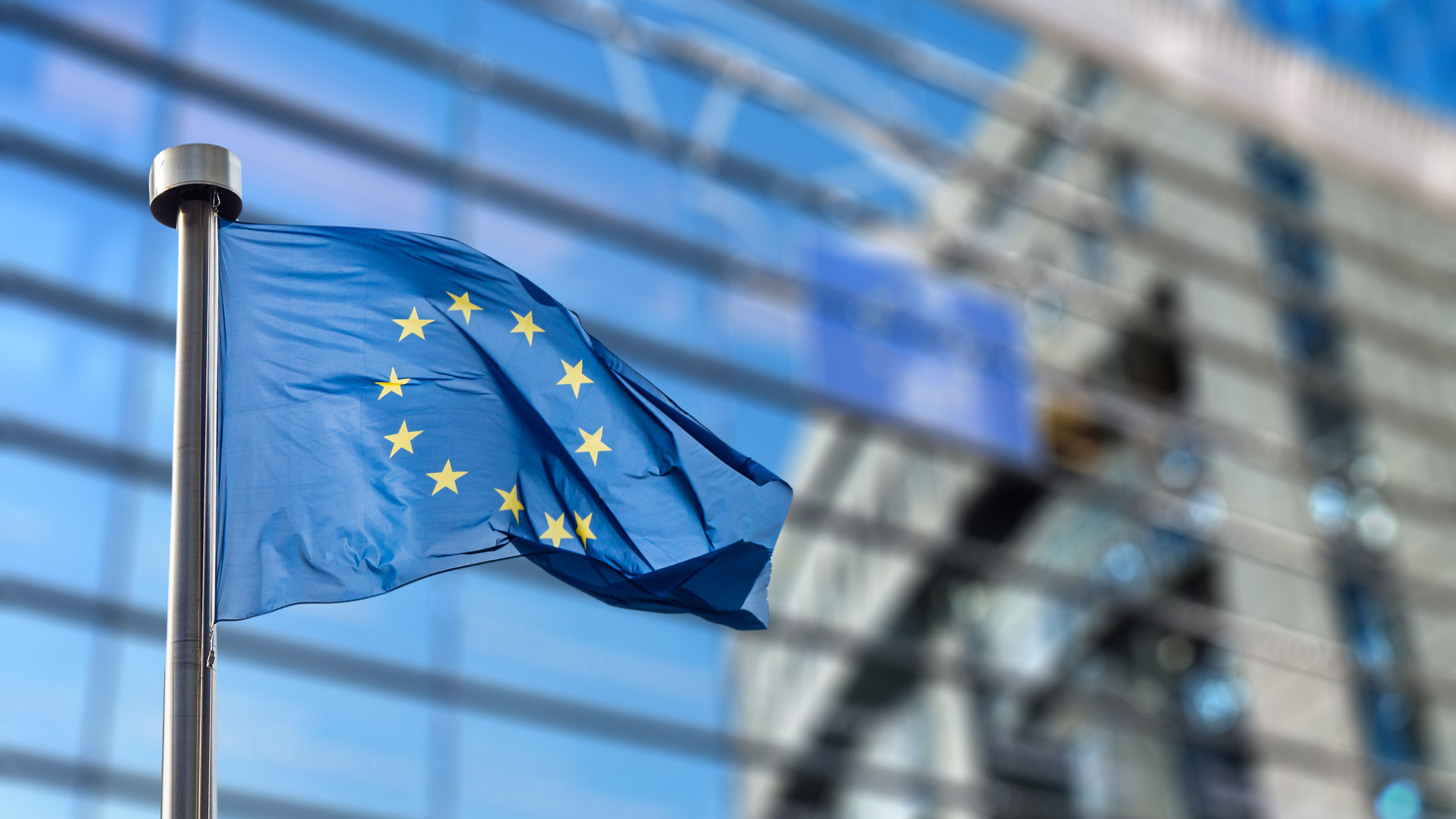 iStock
iStockThe paper stresses the economic benefits of removing trade barriers as an independent Scotland rejoins the EU.
It says this would boost trade with the EU as well as the rest of the world, as well as allowing free travel around the 27 member states.
Free travel around the UK and Ireland is guaranteed under the Common Travel Area arrangement.
Sturgeon said the entry of an independent Scotland into the EU would not be a “particularly lengthy process”.
Taking questions from journalists, Nicola Sturgeon said: “Nobody with any credibility seriously suggests that Scotland would not be welcomed back into the European Union.
“And while there would be a process of negotiation, most people who know what they’re talking about on this issue are very clear that that would not be a particularly lengthy process.”
Follow STV News on WhatsApp
Scan the QR code on your mobile device for all the latest news from around the country







